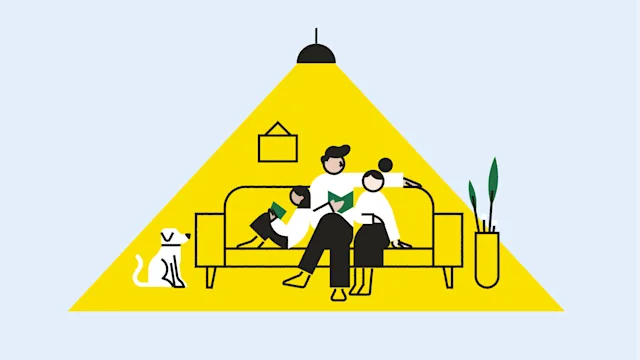Key takeaways:
Road rage is a general term used to describe certain behaviors on the road, such as yelling, honking, and driving recklessly.
Possible causes of road rage include stressful situations like running late, a tendency to react emotionally in general, and a feeling of anonymity on the road.
You can control your road rage through practices such as mindfulness and changing your thought patterns. If your behavior is dangerous, you should consider professional help.
Have you ever gotten angry while you were driving? Or maybe you’ve witnessed other drivers who seemed out of control. The majority of drivers have likely experienced some type of anger while behind the wheel. This is known as road rage. Here are some common causes of road rage and some tips for how you can keep yourself calm while on the road.
What is road rage?
Road rage is not a formal psychological term. It usually refers to a group of behaviors that range from speeding through busy traffic to using a vehicle as a weapon. Researchers don’t have one agreed-upon definition, but many refer to it as aggressive driving.
Common examples of road rage include:
Speeding
Moving dangerously through traffic
Running red lights
Tailgating
Slamming brakes
Search and compare options
More extreme examples of road rage include screaming at other drivers, rude gestures, or forcing someone off the road.
What causes road rage?
Even the most experienced drivers can become stressed while driving. Why some people become outwardly angry or aggressive while others don’t isn’t entirely clear.
Much of the research on the psychology of road rage is inconsistent or outdated. While there are more recent studies in other countries, the most significant U.S. research is 10 to 20 years old. That’s important to note since culture, as well as cars and traffic patterns, change over time and around the world.
Here are some possible causes of road rage based on the research we have.
1. Being prone to anger
In general, research in the U.S. suggests that those who are more prone to anger in general tend to carry that into their driving. However, there are also situations where people who are typically cool and calm get angry on the road.
2. Feeling anonymous behind the wheel
One possible reason people show their anger while driving is due to anonymity. They may feel more free to express their rage since no one knows who they are.
Read more like this
Explore these related articles, suggested for readers like you.
3. Dealing with stress emotionally
One recent study in Israel compared coping styles to how people responded when driving. Those who tended to deal with stress by problem-solving were less likely to have road rage. Those who usually responded emotionally to stress were more likely to get angry while driving.
4. Having a mental health condition
Those with road rage may also have psychological conditions such as alcohol use disorder or a mental health condition. However, keep in mind that this doesn’t mean that mental health problems always lead to road rage.
5. Getting stuck in traffic
Traffic situations may also trigger more aggressive behaviors among those prone to road rage. For example, running late and traffic congestion can lead to speeding.
What are the dangers of road rage?
More than a million people worldwide die each year in auto accidents. It’s the leading cause of death for young people between ages 5 and 29. Young males are more likely to die in accidents than females.
There are multiple causes of car accidents, including speeding, distraction, and drunk driving. All of these can overlap with road rage.
For example, speeding is involved in around one-third of all traffic accidents. In 2021, speeding contributed to more than 12,000 deaths in the U.S. Drivers with road rage tend to drive faster and make more mistakes than other drivers.
There aren’t clearcut statistics on how other aggressive behaviors such as tailgating or cutting off other drivers relate to accidents. However, we know that collisions between two cars account for more than 60% of injuries in overall crashes.
How to keep your cool while driving and prevent road rage
The statistics on road safety can be startling. Fortunately, research also shows that you can lower your driving-related anger. Here are some tips.
Practice mindfulness
Mindfulness is the practice of noticing the present non-judgmentally. It may help you avoid getting angry at others on the road. Begin by practicing mindfulness when not driving. As it becomes more natural, bring it into your driving routine.
To get started with mindfulness, spend a few minutes noticing your breath. Become aware of your breath moving in and out. Don’t try to change your breathing — simply observe it.
Challenge your thoughts
Thoughts connect to anger as well. If you’re having an angry thought toward another driver, think about it from a different point of view. Reframing thoughts that trigger anger may help reduce your urge to act aggressively.
For example, if a driver cuts you off in traffic, it could be because they’re dealing with an emergency or on the way to the hospital. Even if that’s not true, it could interrupt your pattern of angry thoughts.
Also consider if you’ve done the same yourself. Have you ever made a mistake on the road or driven too fast? With that in mind, you may look at your fellow driver differently.
Avoid drugs and alcohol
You probably already know you shouldn’t drive while impaired by drugs or alcohol. And it’s not just alcohol that can be dangerous. Drivers who use cocaine or methamphetamine may drive more aggressively. And common substances such as cannabis can decrease reflexes, which can lead to accidents. Some prescription medications can lead to dangerous driving as well.
Plan ahead
In some cases, aggressive driving is triggered by stress such as running late. To avoid this, plan extra time into your schedule to prepare for the unexpected. For example, leave a little early to allow for traffic jams or a construction detour.
Don’t engage
If another driver acts aggressively, try not to respond in kind. Give them space and avoid eye contact. If you believe you’re being targeted directly, consider driving to a safe public space and stay in your car while calling for help.
Seek therapy
If your anger on the road has gotten to the point that it’s become dangerous to yourself or others, it’s time to get professional help. A trained therapist can help you get at the cause and triggers of your feelings and behavior. With time and support, you can develop safer habits and feel better in the process.
The bottom line
Road rage is a general term for angry and aggressive driving behaviors such as yelling or driving recklessly. There are several possible causes, such as a tendency to get angry in general, the pressure caused by running late, or a feeling of anonymity on the road.
You can deal with your own road rage by planning ahead and practicing mindfulness. Try not to engage with others who are driving aggressively. If your behavior becomes dangerous, consider finding professional help to treat the cause of your road rage.

Why trust our experts?



References
AAA Exchange. (n.d.). Aggressive driving.
Centers for Disease Control and Prevention. (2023). Road traffic injuries and deaths — A global problem.
Deffenbacher, J. L., et al. (2002). Cognitive-behavioral treatment of high anger drivers. Behaviour research and therapy, 40, 895-910. Behaviour Research and Therapy.
Deffenbacher, J. L., et al. (2016). Driving anger as a psychological construct: Twenty years of research using the driving anger scale. Transportation Research Part F: Traffic Psychology and Behaviour.
Ellison-Potter, P., et al. (2001). The effects of trait driving anger, anonymity, and aggressive stimuli on aggressive driving behavior. Journal of Applied Social Psychology.
National Center for Statistics and Analysis. (2022). Summary of motor vehicle crashes. National Highway Traffic Safety Administration.
National Highway Traffic Safety Administration. (2022). Speeding.
National Institute on Drug Abuse. (2019). Drugged driving DrugFacts.
National Safety Council Injury Facts. (2021). Type of crash.
Sansone, R. A., et al. (2010). Road rage. Psychiatry.
Shamoa-Nir, L. (2023). Road rage and aggressive driving behaviors: The role of state-trait anxiety and coping strategies. Transportation Research Interdisciplinary Perspectives.
Su, Z., et al. (2023). The relationship between aggressive driving and driver performance: A systematic review with meta-analysis. Accident Analysis & Prevention.
World Health Organization. (2022). Road traffic injuries.

















